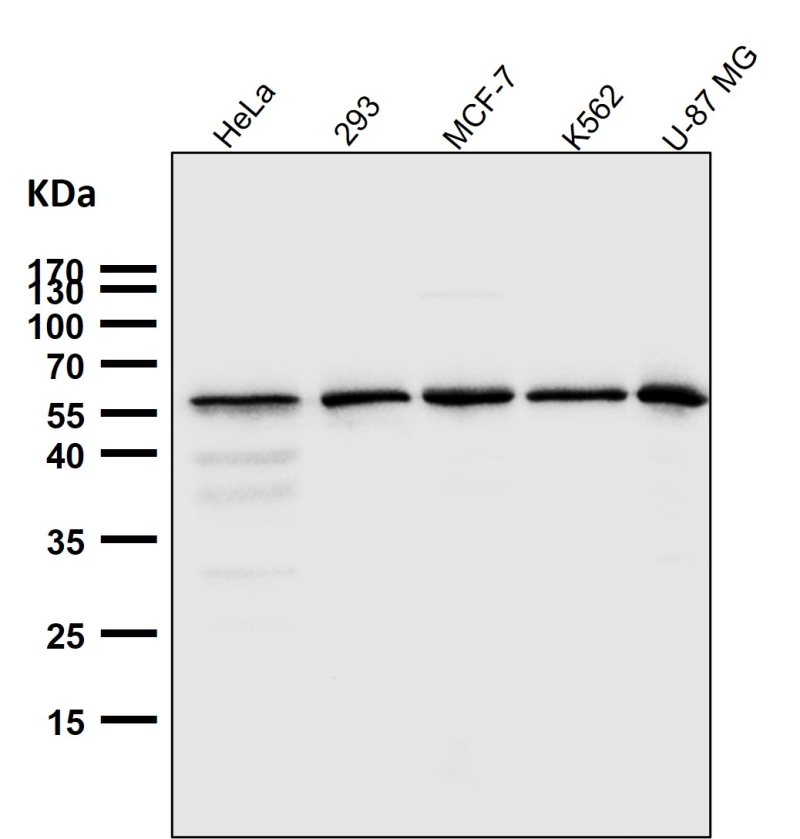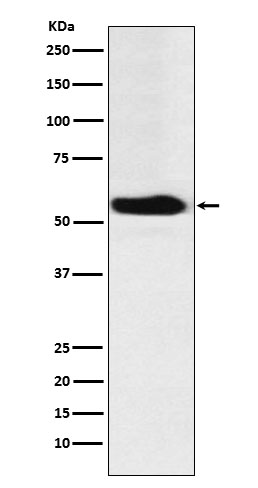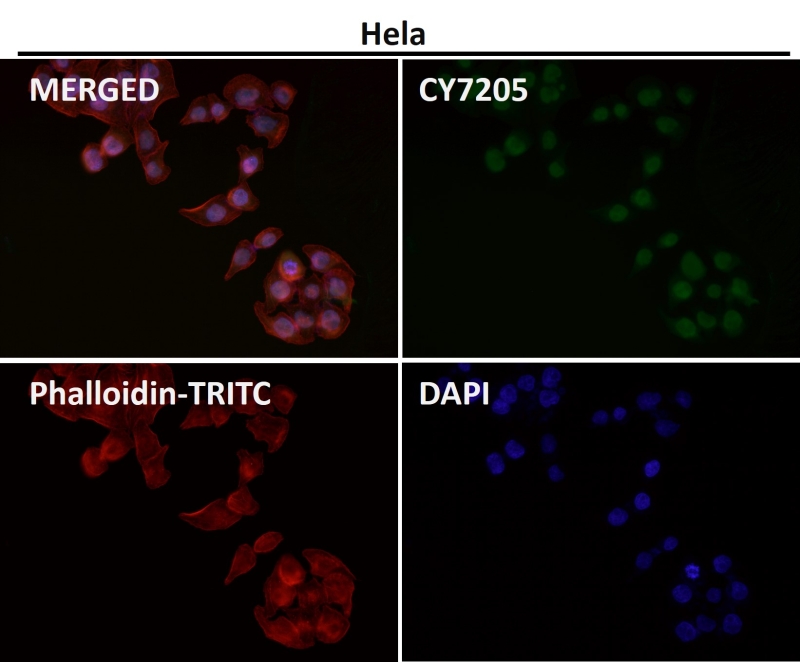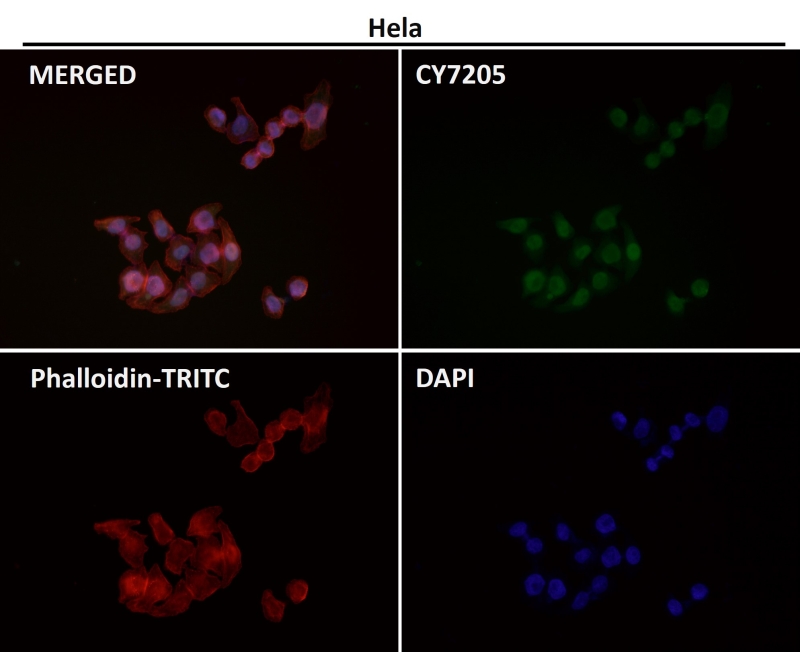



| WB | 咨询技术 | Human,Mouse,Rat |
| IF | 咨询技术 | Human,Mouse,Rat |
| IHC | IHC:1/100-1/200;IHF:1/50-1/200 | Human,Mouse,Rat |
| ICC | 1/50-1/200 | Human,Mouse,Rat |
| FCM | 咨询技术 | Human,Mouse,Rat |
| Elisa | 咨询技术 | Human,Mouse,Rat |
| Aliases | ALKBH9; Fto; GDFD; Protein fatso;;FTO |
| WB Predicted band size | 58 kDa |
| Host/Isotype | Rabbit IgG |
| Antibody Type | Primary antibody |
| Storage | Store at 4°C short term. Aliquot and store at -20°C long term. Avoid freeze/thaw cycles. |
| Species Reactivity | Human |
| Immunogen | A synthesized peptide derived from human FTO |
| Formulation | Purified antibody in PBS with 0.05% sodium azide,0.05% BSA and 50% glycerol. |
+ +
以下是3篇与FTO抗体相关的研究文献摘要(示例为虚构内容,实际文献需通过数据库检索):
---
1. **文献名称**: "Development of a Monoclonal Antibody Targeting Human FTO Protein for Obesity Research"
**作者**: Zhang Y, et al.
**摘要**: 本研究开发了一种高特异性抗FTO单克隆抗体,通过Western blot和免疫组化验证其在人脂肪组织中的表达,证实其可用于检测FTO蛋白在肥胖相关代谢疾病中的表达水平变化。
---
2. **文献名称**: "FTO Antibody-Based Detection of m6A Demethylase Activity in Mouse Brain Tissue"
**作者**: Li X, Wang H.
**摘要**: 利用FTO特异性抗体探究小鼠脑组织中m6A去甲基化酶活性,发现FTO蛋白在神经元分化中通过表观遗传调控影响神经发育,抗体检测结果与质谱分析数据一致。
---
3. **文献名称**: "Comparative Study of Commercial FTO Antibodies in Cancer Cell Line Analysis"
**作者**: Smith J, et al.
**摘要**: 对比了5种市售FTO抗体的特异性及灵敏度,发现抗体批次差异可能影响FTO蛋白在肿瘤细胞中的定量结果,提出标准化检测流程建议。
---
**提示**:实际文献建议通过PubMed或Google Scholar检索关键词“FTO antibody”、“FTO protein detection”获取,重点关注抗体开发、验证或应用类研究。
The FTO (fat mass and obesity-associated) protein, encoded by the FTO gene, gained prominence due to its strong genetic association with obesity identified through genome-wide association studies (GWAS). It belongs to the AlkB family of non-heme Fe(II)/α-ketoglutarate-dependent dioxygenases and functions primarily as an RNA demethylase, regulating post-transcriptional modifications such as N6-methyladenosine (m6A) in mRNA. This epigenetic role links FTO to diverse biological processes, including adipogenesis, energy homeostasis, and cellular proliferation.
FTO antibodies are essential tools for investigating its expression, localization, and molecular interactions. They enable detection of FTO in tissues/cells via techniques like Western blot, immunohistochemistry, and immunofluorescence. Commercially available antibodies are typically raised against specific epitopes of human or mouse FTO, with validation in knockout models to ensure specificity. Applications span obesity research, cancer biology (where FTO overexpression correlates with tumor progression), and metabolic disorder studies. Challenges include cross-reactivity with homologous proteins (e.g., ALKBH5) and distinguishing functional isoforms. Recent studies also explore FTO's involvement in viral infections and neurological diseases, expanding the utility of these antibodies in emerging research fields. Proper antibody validation remains critical due to FTO's complex regulatory mechanisms and context-dependent roles.
×